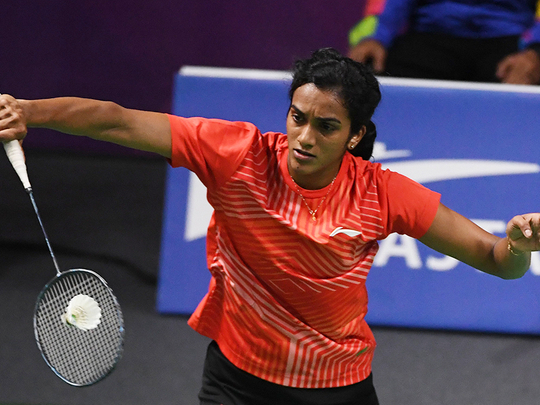
P.V. Sindhu is India’s most successful woman badminton player. Is she? Silver medals in Olympics, Commonwealth Games and the Asian Games. And the runner-up at two world championships. These are awesome feats that make her the best Indian player.
You could argue that Saina Nehwal has been more successful. But Sindhu’s got more medals from majors, and that means she’s a consistent world-class performer. Yes, Saina has won 2 gold medals from the 2010 and 2018 Commonwealth Games; the second one came at the expense of Sindhu.
A gold is missing from Sindhu’s medal haul. She may be seventh in the Forbes list of highest-earning women athletes, even overshadowing tennis World number one Simona Halep. But that doesn’t mean a thing without a gold medal against your name. It is the mark of a champion.
All those silver medals show that Sindhu had been on the cusp of victory several times. And on each occasion, the Hyderabad girl had come up short. Look at Sindhu’s record this year. Besides the majors, the 23-year-old played five other finals without winning them. So, is she a choker?
It’s too early to tag her a choker, although the evidence is compelling. At 23, to call her an eternal bridesmaid would be uncharitable. After the recent loss in the Asian Games in Indonesia, Sindhu said she’s learning from her mistakes and has to improve her strokes.
What about mental toughness? P. Gopichand, who coaches Sindhu and Saina, says both the girls are mentally tough. Yes, they are. But repeated losses to an opponent is worrying. Spaniard Carolina Marin was a nemesis for Sindhu and Saina. Now it’s Tai Tzu Ying of Chinese Taipei. That’s disturbing.
It reminds me of Andre Agassi. For all his early success and stardom, the American tennis prodigy never looked like cracking the Grand Slam puzzle. Jim Courier, who never attracted the same kind of attention, found success at the majors much earlier than Agassi. But once Agassi won the 1992 Wimbledon title, there was no stopping him.
Sindhu too needs that elusive first major win. That could well be a springboard for more success. Winning and losing is a part of life, she has said. But for a sportsperson, only victory matters.
Winning is a habit. Sindhu has to acquire that habit. After all, success breeds success.










